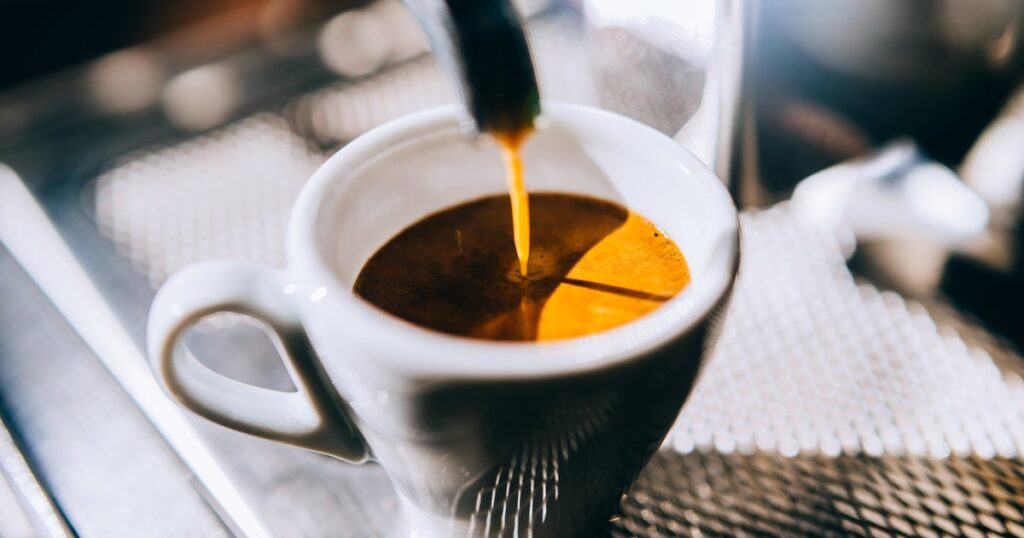Over the past month, President Donald Trump has instilled high tariffs on countries like China, Canada and Mexico while sparking a trade war with China. He paused some tariffs for 90 days, but the damage has already been done.
For the first time in U.S. history, the government has placed a blanket 10% tariff on every single country, which Michael Coon, an associate professor of economics at the University of Tampa, calls “unusual.”
“The only place you really see something like that is in lower-income countries that don’t have the infrastructure to collect income taxes,” Coon told HuffPost. “It’s easier for them to collect tariffs at the port because you have to set up a customs office on the dock.”
But what exactly are tariffs, and how do they affect the cost of the groceries you buy in your everyday life?
“Tariffs are basically a tax on imported goods,” Coon said. “It’s very similar to a sales tax. Anything we import from any other country is going to cost 10% more. On Mexico and Canada, we have a 25% tariff on most goods, and so that would raise prices by 25%. And Canada and Mexico are two of our biggest trading partners.”
Many foods will be hit by tariffs, particularly produce like mangos, vanilla, bananas, summertime apples and cocoa that cannot be grown in bulk in the U.S., so we have no choice but to import them. But if you want a perfect example of an everyday food whose tariff will impact your life, coffee is a good one to examine.
Let’s look at coffee as a prime example of how tariffs affect us
Coon cited that in 2023, the U.S. imported $7.85 billion worth of coffee. “A 10% tariff means that Americans are going to pay an extra $785 million for coffee,” he said.
The problem is, a commodity like coffee can’t be grown in large supplies in America. For instance, Hawaii and Puerto Rico are the only regions where coffee can be grown here, and they make up around 1% of all the coffee grown globally.
“The United States consumes roughly 20% of the world’s coffee,” Coon said. “That means everybody’s coffee is going to get more expensive, and we get a large share of our coffee from Mexico. I suspect that the 25% tariffs stay on Mexico. We will import more from other countries, but that’ll maybe possibly drive the price up even further than the 10% tariffs, as the increase in demand from those countries would track the price up.”
Heather Perry is the CEO of coffee roaster Klatch Coffee and has already seen the tariffs affect the coffee market. “What’s interesting is coffee has never been subject to tariffs before, because it does not grow in the U.S.,” she said.
As she explained, if the 46% tariff on Vietnam takes effect, it would cause Robusta coffee to become more expensive than Arabica, and Vietnam is the largest grower of Robusta and the second-largest coffee producer in the world.
“For somebody like us, not only do you have a little less supply potentially available in the Arabica market if reciprocal tariffs were to take place, but you also have within specialty coffee some countries that would take some high tariffs. “Sumatra has a 32% tariff. Sumatra, for us in particular, is a really big component of some of our biggest blends we sell. While at 10%, we are taking a little bit of a wait-and-see approach on the retail side of things, at 32%, that would be really impactful. We would have to absolutely either raise prices somehow or rework blends or a combination of the two.”
Guido Mieth via Getty Images
The chaos has already forced Klatch to create a separate line item for tariffs. “Assuming the tariffs go away, that line item goes away,” Perry said. “So this does not become a permanent price increase but just something to absorb those costs of the tariffs so we can continue to maintain in other areas. On the retail side, we are playing a wait-and-see. We are both retail and wholesale, and my retail stores buy from the wholesale division of our company. So even if wholesale puts a tariff line to my stores on the retail side, I would incur that higher cost, and I would for the moment not pass anything on to consumers and just watch everything really closely.”
Another issue Klatch has to consider is packaging, which they acquire from Hong Kong. “We’re trying to figure out if Hong Kong is subject to a 145% tariff or not,” Perry said. “As you’re trying to do your business planning and budgeting, it becomes very difficult. We’re all kind of working off of best guesses at this point.”
What can consumers do about tariffs?
Both Coon and Perry agree that there’s not much people can do. “If you rush out and you panic and you try to buy all of these things now before the tariffs go into place, basic supply and demand causes the price to go up anyway,” he said. “If you’re the first one to stock up, you might luck out. But that’ll just drive up prices for everybody else.” And unfortunately, the tariffs will affect low-income people the most.
Perry suggested that people write to their Congresspeople and demand that the government keep coffee exempt from tariffs. “Coffee should be exempt from tariffs,” Perry said. “Coffee is a staple. It’s been part of this country since its founding.” She said cheap coffee has experienced more of a price hike than specialty coffee, and to purchase the latter in bulk.
“Make sure you’re buying really good coffee and make sure you’re buying coffee from roasters that are finding you those values,” she said. “You have to be more intentional with your dollar. What’s really worth my dollar right now? Where do I taste and say, ‘man, that’s really delicious?’ Where are you getting fresh roasted coffee from? Honestly, something found on your grocery shelves is probably not worth your money right now.”
Trae Bodge, a smart shopping expert, recommended shopping online for deals.
“It’s easier to compare prices across multiple e-tailers and utilize savings tools when you shop online,” Trae said. “For example, installing a browser extension, like the Sidekick by CouponCabin.com, will automatically alert you to available cashback offers and coupons that you click to activate. A tool like this will also run coupons for you at checkout.” She also suggested shopping at low-cost retailers like Dollar General and purchasing store brands instead of brand names. “Store brands are typically cheaper and often have the same ingredient listing as the store brand,” she said.
All of the volatility with the tariffs has given consumers and small businesses whiplash. It remains to be seen if the 90-day pause will be lifted or if the trade war with China will continue. Either way, we are living — and spending too much money — during these unprecedented times.
“I think there’s a pretty good chance of a recession,” Coon said. “If something doesn’t give soon, it’s going to get a lot worse before it gets better.”
“It’s a wild ride,” Perry said. “We’re all just hanging on.”
Read the full article here








